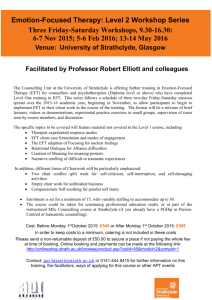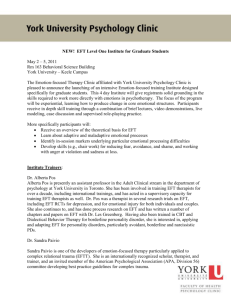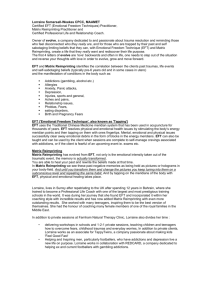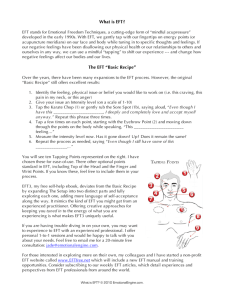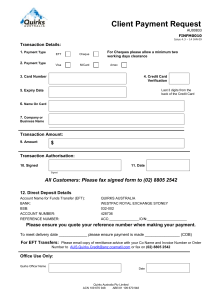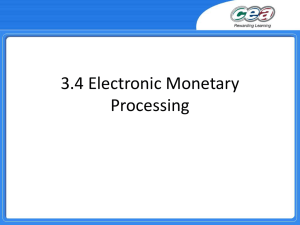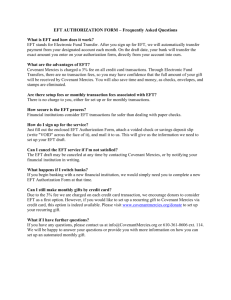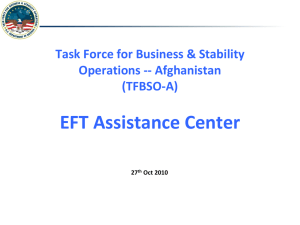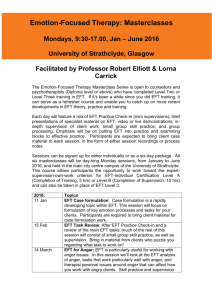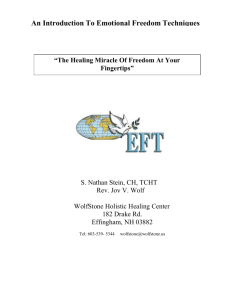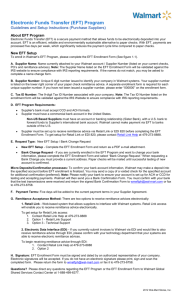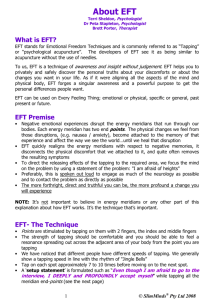What is EFT? EFT stands for Emotional Freedom Technique. EFT is
advertisement
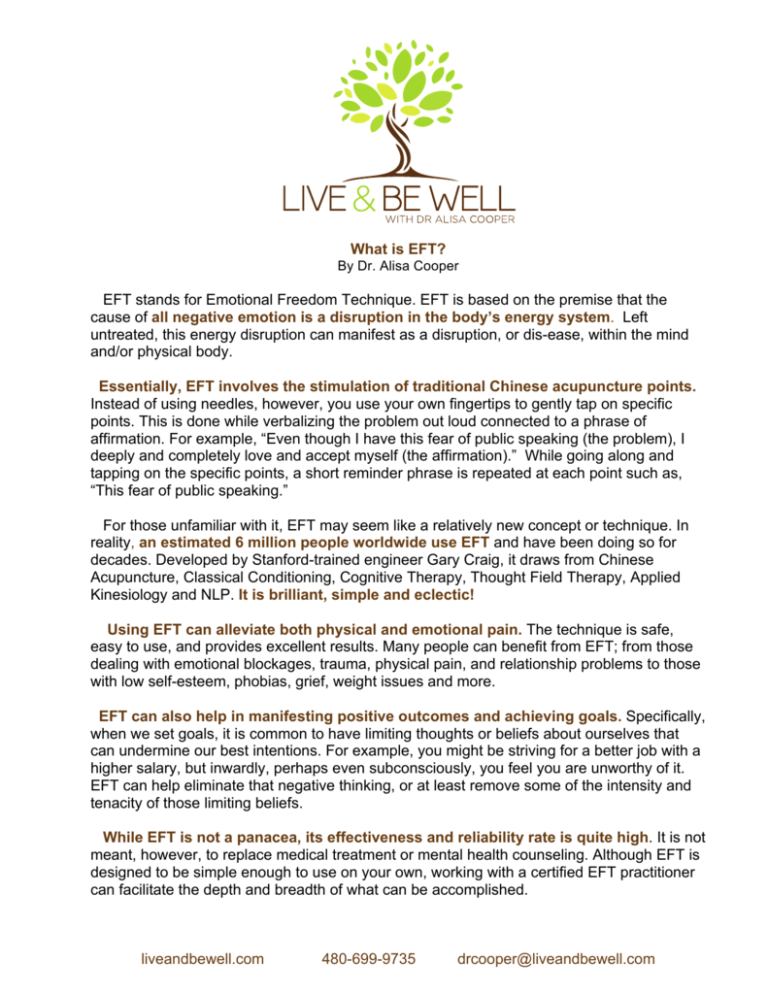
What is EFT? By Dr. Alisa Cooper EFT stands for Emotional Freedom Technique. EFT is based on the premise that the cause of all negative emotion is a disruption in the body’s energy system. Left untreated, this energy disruption can manifest as a disruption, or dis-ease, within the mind and/or physical body. Essentially, EFT involves the stimulation of traditional Chinese acupuncture points. Instead of using needles, however, you use your own fingertips to gently tap on specific points. This is done while verbalizing the problem out loud connected to a phrase of affirmation. For example, “Even though I have this fear of public speaking (the problem), I deeply and completely love and accept myself (the affirmation).” While going along and tapping on the specific points, a short reminder phrase is repeated at each point such as, “This fear of public speaking.” For those unfamiliar with it, EFT may seem like a relatively new concept or technique. In reality, an estimated 6 million people worldwide use EFT and have been doing so for decades. Developed by Stanford-trained engineer Gary Craig, it draws from Chinese Acupuncture, Classical Conditioning, Cognitive Therapy, Thought Field Therapy, Applied Kinesiology and NLP. It is brilliant, simple and eclectic! Using EFT can alleviate both physical and emotional pain. The technique is safe, easy to use, and provides excellent results. Many people can benefit from EFT; from those dealing with emotional blockages, trauma, physical pain, and relationship problems to those with low self-esteem, phobias, grief, weight issues and more. EFT can also help in manifesting positive outcomes and achieving goals. Specifically, when we set goals, it is common to have limiting thoughts or beliefs about ourselves that can undermine our best intentions. For example, you might be striving for a better job with a higher salary, but inwardly, perhaps even subconsciously, you feel you are unworthy of it. EFT can help eliminate that negative thinking, or at least remove some of the intensity and tenacity of those limiting beliefs. While EFT is not a panacea, its effectiveness and reliability rate is quite high. It is not meant, however, to replace medical treatment or mental health counseling. Although EFT is designed to be simple enough to use on your own, working with a certified EFT practitioner can facilitate the depth and breadth of what can be accomplished. liveandbewell.com 480-699-9735 drcooper@liveandbewell.com There are times when an EFT practitioner may refer an occasional client for counseling with a mental health professional. Results using EFT can be immediate and seem nothing short of miraculous! When severe trauma is involved, however, the results may come more slowly, and the issue being dealt with likened to the layers of an onion. Once one layer is successfully peeled back, another emerges that must be addressed and so on. Completely collapsing a long-standing, intense issue may require dealing with many layers, and you may need to do some tapping on your own at home, as well as additional sessions working with your practitioner. At no time does EFT take away the normal, natural emotions that you would expect to feel after traumatic or tragic events. EFT primarily helps take away the ‘over the top’ emotions that prevent you from dealing with your emotions in a healthy, effective way. Unfettered by emotional triggers, limited beliefs and intrusive thoughts, you can move forward with decisions, goals and your fabulous life. liveandbewell.com 480-699-9735 drcooper@liveandbewell.com
